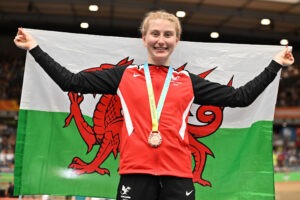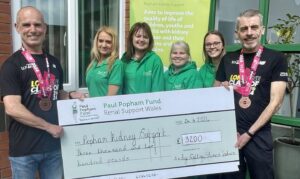A History of the Welsh Grand National at Chepstow

The Welsh Grand National is one of the most popular events for fans to bet UK horse racing, featuring a strong betting race that builds up towards Christmas. Each-way backers flurry towards the competitive handicap event, allowing bookies to provide enhanced terms for the tournament, with up to sixth place clinching prizes.
Brief History
Ely Racecourse was the original destination of the Welsh Grand National. Upon the creation of the tournament in 1895, races were run at the Cardiff track before switching to the Caerleon Racecourse for a year in 1948. This location is currently home to the Celtic Manor championship golf course.
The competition didn’t come to Chepstow until 1949 when the hosts maintained the original time slot of Easter Tuesday. In 1969, the timing was adjusted to February to make room for better horses to enter the race. Then, finally, it was adjusted to Christmastime a decade later.
How the Event Works
The Welsh Grand National is held in a rural area just above the town of Chepstow, bordered to the right by the River Wye. The race spans a marathon of three and three-quarter miles and is usually held on testing ground. Despite being a long-distance event, many top horses have turned up to win the competition, including Synchronized, Burrough Hill Lad, Master Oats, Native River, and Cool Ground, all clinched the prize before challenging and winning the Cheltenham Gold Cup.
Ace trainer, Martin Pipe, was a dominant force in the Welsh Grand National during the late 80s and early 90s. A clinched the win five times in six attempts and raced dour horses to victory in 1992, with stablemates Bonanza Boy, Riverside Boy, Run For Free, and Minnehoma. The competition received further attention in the west when Hollywood filmmakers made a film about Dream Alliance’s success in 2009.
Earliest Winner
After moving to Chepstow and running at the Monmouthshire centre ever since, the inaugural Welsh Grand National race was won by legendary jockey, Richard Stanley ‘Dick’ Francis, who rode on a horse trained by Ken Cundell, Fighting Line. Francis went on to jockey 350 more winners at the event, clinching the National Hunt Jockeys’ Championship in 1953/54. However, since his professional career began in the past year, the Welsh Grand National remains his most important career win to date.
Francis would have added the Grand National proper to his belt if his mount had not collapsed unexpectedly. At the run-in of the final stages in the 1956 renewal, Devon Loch buckled under, dislodging its jockey. Many experts posited that cramps, crowd noises, the shadow of the water jump, and false ground are to blame for the inexplicable incident. ESB, who went on to win the race, remains the most opportune winner of the tournament to date.
Other Historic Victories
The Welsh Grand National has also hosted some winners of the Cheltenham Gold Cup, including Native River in 2016, Master Oats in 1994, Burrough Hill Lad in 1983, Synchronized in 2010, and Cool Ground in 1990. Each mount won the blue riband for jump racing upon completing the Chepstow marathon. Synchronized was the only mount to attempt a double for the Grand National and Gold Cup, but met its end while galloping loose.
Bonanza Boy won the race in two consecutive seasons (1988 and 1989) under the training of Martin Pipe. The mount was saddled with 10st 1lb in its first try, but bore 11st 11lbs in its second attempt. Pipe went on to train Carvill’s Hill, who charged to victory with a top weight of 11st 12lbs. Entering the Cheltenham Gold Cup, the mount was immediately deemed a favourite. However, Cool Ground came on top in a contestable race.




